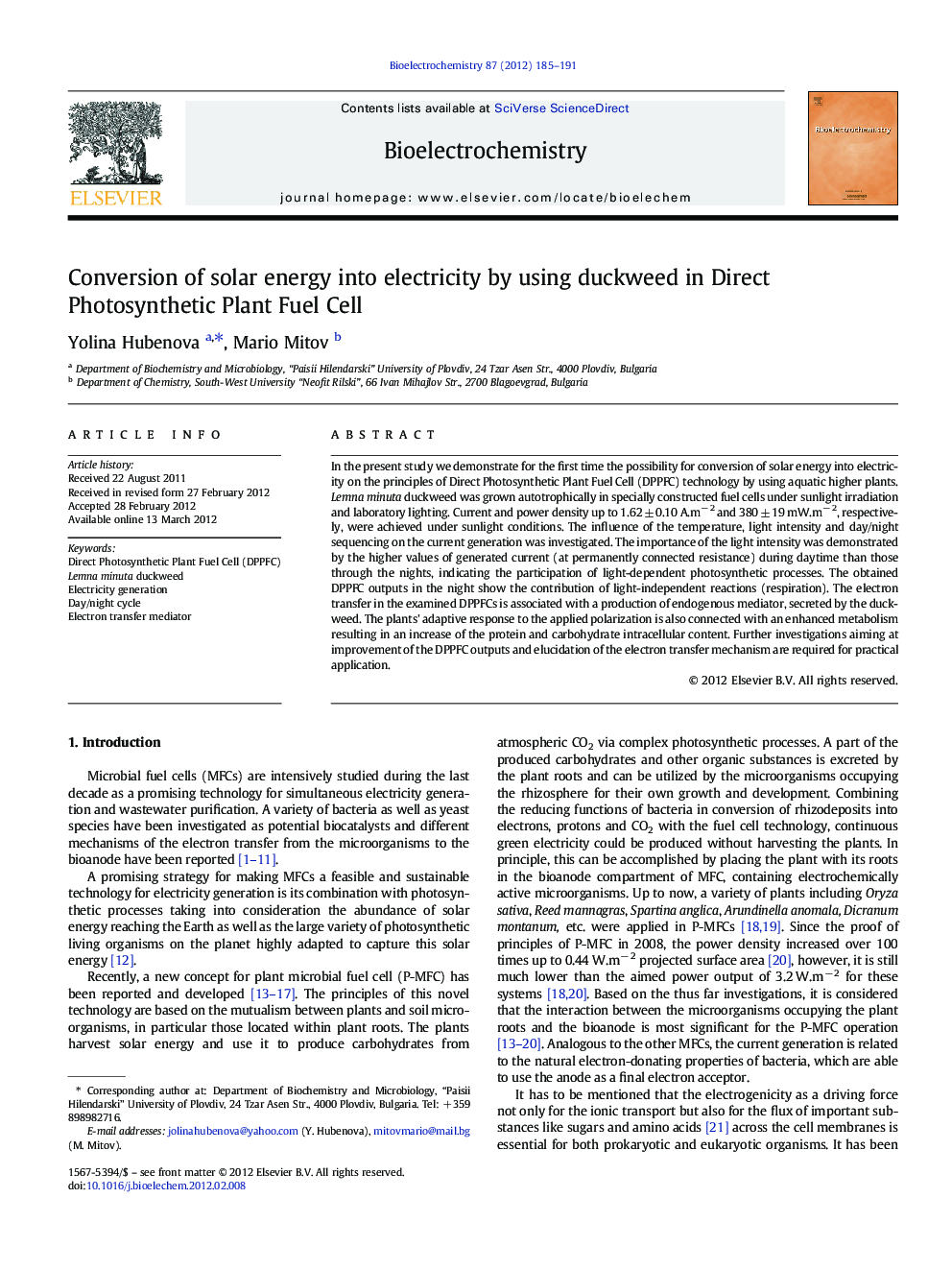| Article ID | Journal | Published Year | Pages | File Type |
|---|---|---|---|---|
| 1274454 | Bioelectrochemistry | 2012 | 7 Pages |
In the present study we demonstrate for the first time the possibility for conversion of solar energy into electricity on the principles of Direct Photosynthetic Plant Fuel Cell (DPPFC) technology by using aquatic higher plants. Lemna minuta duckweed was grown autotrophically in specially constructed fuel cells under sunlight irradiation and laboratory lighting. Current and power density up to 1.62 ± 0.10 A.m− 2 and 380 ± 19 mW.m− 2, respectively, were achieved under sunlight conditions. The influence of the temperature, light intensity and day/night sequencing on the current generation was investigated. The importance of the light intensity was demonstrated by the higher values of generated current (at permanently connected resistance) during daytime than those through the nights, indicating the participation of light-dependent photosynthetic processes. The obtained DPPFC outputs in the night show the contribution of light-independent reactions (respiration). The electron transfer in the examined DPPFCs is associated with a production of endogenous mediator, secreted by the duckweed. The plants' adaptive response to the applied polarization is also connected with an enhanced metabolism resulting in an increase of the protein and carbohydrate intracellular content. Further investigations aiming at improvement of the DPPFC outputs and elucidation of the electron transfer mechanism are required for practical application.
Graphical abstractFigure optionsDownload full-size imageDownload as PowerPoint slideHighlights► Conversion of solar energy into electricity by Direct Photosynthetic Plant Fuel Cell. ► 1.62 ± 0.10 A.m– 2 and 380 ± 19 mW.m– 2 generated under sunlight irradiation. ► Established dependence of fuel cell electrical outputs on the light intensity. ► Enhanced metabolism of duckweed as an adaptive response to polarization. ► Extracellular electrochemically active metabolite as an electron transfer mediator.
